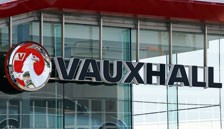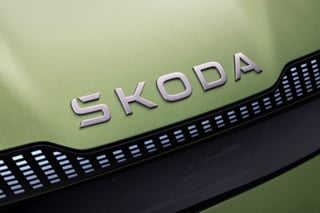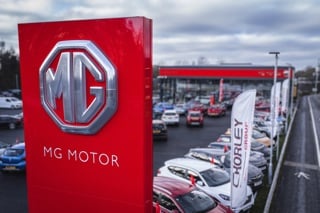Publicly available data would suggest Vauxhall is having a difficult year. Its total new car and LCV volume for the first 10 months is more than 12,000 units below the same point in 2011.
But closer examination of the figures shows that the Vauxhall retail network has had plenty to do. Private registrations are up by 25% to 66,000 while business volumes are up 5% to 17,800.
It’s the fleet sector where Vauxhall has seen the decline. It has sold 21,000 fewer cars to fleet this year, a move which managing director Duncan Aldred has described as deliberate. Aldred needs Vauxhall to step back from some of the low or non-profit deals it has long been associated with in order to preserve its own future.
That’s not to say it wants to sacrifice more market share. Certainly, Vauxhall’s one-time ambition of taking UK market leadership has been left well behind, but it doesn’t want to shrink.
Aldred said exchange rates mean that the UK is now “a bit more profitable, or a little less loss-making” than many other European new car markets which is helping to drive growth in its total industry volumes. On Vauxhall’s part, it has been promoting significant retail strategic campaigns, from £500 free fuel to its Flexible Finance hire purchase programme.
Retail growth will mean much-needed improvement in the franchised network’s profitability. Dealers have said around half of the network made a loss in 2011. Aldred said it was actually around a third, but insisted the average returns from the franchise have “doubled, but from a low base”. AM understands it is still below 1% ROS.
Aldred suggested dealer performance might be one reason for the poor profits. The industry is in a challenging age when dealers must be good at every line of their business. “We have a lot of profit in the dealerships that are very good at process etc. Theirs is a very good business model. It’s clear in this environment that you can be a profitable dealer, look at those with rigid processes and you’ll see they are making a good return,” Aldred said.
Network reductions
Analysis of AMi data shows that Vauxhall has taken some action in refining its retail presence, but the numbers suggest more rebalancing could be yet to come in the longer term. Its network has reduced in the last decade by 12% to 356 locations.
Its new car sales volumes have declined by around 27% in the same period. Retail new car throughput per location stood at 222 units at the end of last year. Nevertheless, the most recent Dealer Attitude Survey by the National Franchised Dealers Association showed a small uplift year-on-year in the franchise’s ratings for profit return and future profitability – a sign of its partners’ confidence.
Last year Vauxhall undertook a five-year projection of the industry and concluded that its dealer business model is sustainable. Aldred said should problems arise Vauxhall will deal with them, but there will be no more wholesale changes.
The network has seen some churn in the past 18 months – some driven by Vauxhall issuing new franchise contracts ahead of the June 2013 Block Exemption. One dealer group head said certain locations and operators were told they had no future with the franchise.
Dealers to exit the brand include Hartwell, which sold its businesses to Thurlow Nunn, Cambria and Skurrays, and Caffyns, which will refranchise its Ashford and Tunbridge Wells Vauxhall outlets.
Eyebrows were raised when several dealerships jointly owned by Vauxhall’s Motor Holdings business went into administration this year. Stevens Vauxhall in Horsham and Crawley collapsed in August, the same week as Approach (UK) which had Vauxhall outlets in Andover and Salisbury. In February Seward (Wessex) collapsed, leading to its acquisition by Eden.
The purpose of Motor Holdings is to enable entrepreneurial managers to operate their own business. The manufacturer takes a part share and is eventually bought out by the retailer.
Given the poor financial position of Vauxhall’s parent GM Europe there were suggestions it could no longer support problem partners.
Aldred agreed ultimately there was no endless pot of gold, but said financial difficulties are not a general issue with the Motors Holdings operations. “They’re as healthy as anyone else,” he said. As with any dealer on a red alert, Vauxhall will send in consultants to examine the business and stabilise it where possible. In cases where the partnership isn’t working Vauxhall may buy the partner out or allow it to close.
Aldred warned of signs that 2013’s market forecast faces significant risks, including further public sector job cuts. The current decline in the light commercial vehicle and fleet car markets could be early signs of trouble, indicating that businesses are holding back on investment. He also questioned if the private market’s growth was partly due to pent-up demand as consumers deferred their change of car post-scrappage.
Future prospects
Significant focus will remain on retail sales. Vauxhall hopes its newest models – Mokka, Adam and Cascada – will cause people to reappraise the Vauxhall brand, and give it a foothold in untapped market segments.
Mokka, a B-segment crossover on sale from £16,995, is expected to achieve 28,000 annual sales, becoming Vauxhall’s third biggest seller behind Corsa and Astra.
Adam, launching in February priced from £11,255, has a 10,000 unit target. It is a premium A-segment car with a vast range of personalisation options that help drive up its average invoice value, mirroring the success of Mini or Fiat’s 500. Dealers will be required to have an Adam specialist at each site.
Cascada, a premium large four-seater convertible launches in March priced around £25,000. It will be a low volume niche model.
Break even plan
Vauxhall’s parent GM Europe has well-publicised financial issues, having posted a loss of around £450m in 2011. It is expected to take action in the medium term to address overcapacity in its assembly plants, with at least one closure proposal expected.
Salary freezes and more than 2,000 job cuts, plus a partnership with PSA Peugeot Citroën on certain new models, are among the measures already taken in its bid to reach breakeven by 2015.
But investment bank Morgan Stanley has warned that GM Europe’s plan for breakeven is based on not losing market share, something it sees as a challenge given Hyundai, Kia and Volkswagen’s onslaught.
What's in the tool kit?
- Vauxhall 0% hire purchase offers for up to five years through its Flexible Finance programme.
- Vauxhall says Lifetime Warranty continues to achieve improvements in brand perception.
- National football team sponsorships are aimed to help to build the brand.
- Online service booking went live in September, allowing consumers to book a fixed price service at a chosen dealer with at least
48 hours’ notice.
- A national fixed price interim service offer, Masterfit service plans, MoT insurance package, service club loyalty programme























ICEAGE - 07/12/2012 17:04
The Guy's at Vauxhall deliver such great spin they should be playing in the Testmatch! GM Europe has lost money every year for the last 10-years. This year it will loose over 1 Billion. With the USA facing thier 'Fiscal Cliff' in 3 weeks time the New Year will bring in increased US taxes, it will not be long now before their taxpayers wake up and say enough is enough we dont want anymore tax payer dollars going to subsidise operations in Europe.... GM EUROPE = GREECE